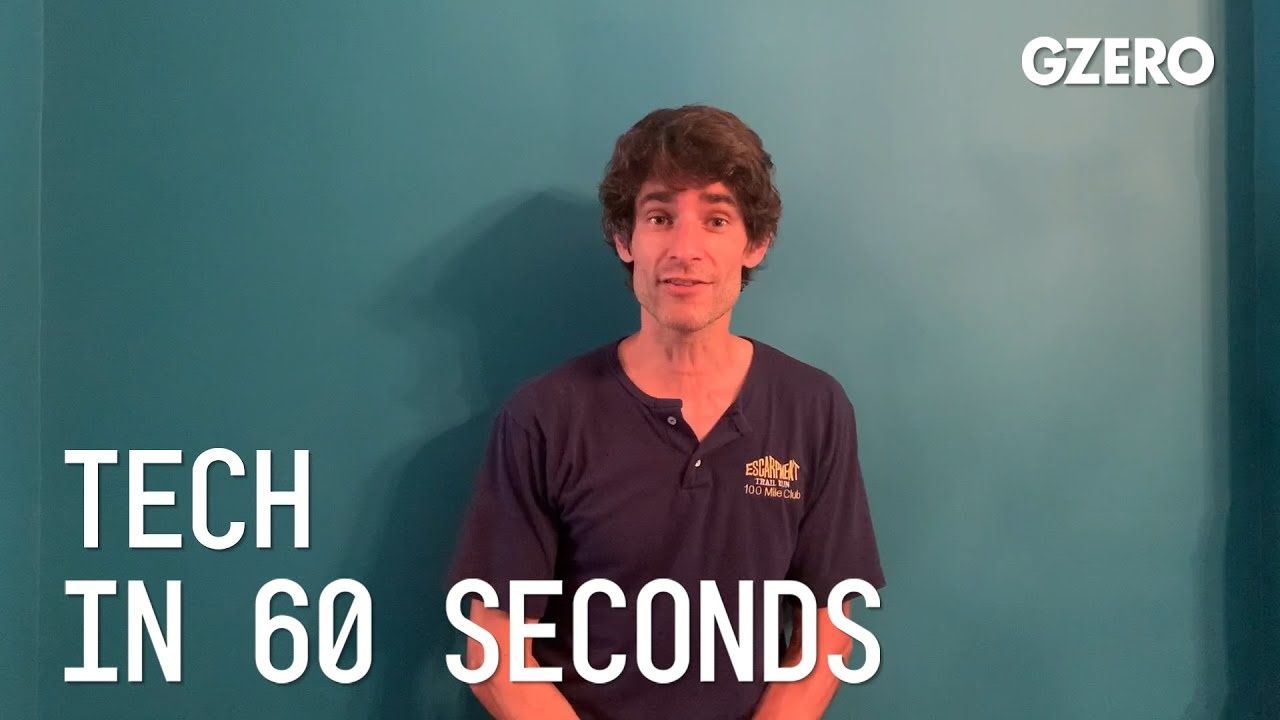In 60 Seconds
Trump vs Twitter; Civilians in Space?

Trump vs Twitter; Civilians in Space? | Tech In :60 | GZERO Media

Nicholas Thompson, editor-in-chief of WIRED, explains the feud between Trump and Twitter and weighs in on Elon Musk's ambitious space plans:
What is happening between Trump and Twitter?
A lot. Twitter decided it had to fact check the president because the president said something that wasn't entirely true, and perhaps was false, about voting. Twitter cares a lot about lies about voting. So, they fact check Trump. Trump got really mad, said he's going to get rid of some of the laws that protect Twitter from liability when people say bad things on their platform. That started war number one.
War number two, started when Trump threatened violence on Twitter against protesters in Minneapolis. Twitter has a policy against threatening or glorifying violence. So, they hid that tweet a bit, which made Trump really mad. The upshot? Twitter is finally enforcing some of its policies against the president, though a little haphazardly and certainly imperfectly. The president is raging, which may screw up some of the laws that have kept the Internet in the US and functioning well for the last couple of decades.
When will we send civilians to space?
That is a hard question. Elon Musk promised that it would be at the end of 2021. So, with the coronavirus and that he usually doesn't quite hit his deadlines, let's say early 2023.
Americans are moving less — and renting more. Cooling migration and rising vacancy rates, especially across the Sunbelt, have flattened rent growth and given renters new leverage. For many lower-income households, that relief is beginning to show up in discretionary spending. Explore what's changing in US housing by subscribing to Bank of America Institute.
1,170: The number of high-rise buildings in Kyiv that were left without heating following a barrage of Russian attacks last night on Ukraine’s capital and its energy facilities, per Kyiv Mayor Vitali Klitschko.
Over the past five years, Haiti has endured extreme political turmoil, escalating violence, and one of the world’s worst humanitarian crises.
Microsoft unveiled a new set of commitments guiding its community‑first approach to AI infrastructure development. The strategy focuses on energy affordability, water efficiency, job creation, local investment, and AI‑driven skilling. As demand for digital infrastructure accelerates, the company is pushing a new model for responsible datacenter growth — one built on sustainability, economic mobility, and long‑term partnership with the communities that host it. The move signals how AI infrastructure is reshaping local economies and what people expect from the tech shaping their future. Read the full blog here.